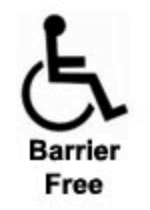Frequently Asked Questions
No, we may need to request some updated records, but we will not reestablish eligibility for the program. Everyone in public housing at the time of conversion has a right to remain.
If you’ve received accommodation to be in a larger unit than what’s required by our occupancy standards, that will not change after conversion.
You will be allowed to stay in the larger unit if there’s no smaller unit available. We have certain types of transfers, like emergency transfers, which take priority over transfers based on occupancy (the number of people in the unit compared to the number of bedrooms). This is why a transfer hasn’t happened. We will work with tenants who want or need a smaller unit. We will allow tenants to remain in the same area, like Roseburg, as part of the transfer request.
We received a clarification from HUD on transfers to smaller units based on household size: Tenants cannot be displaced because they are living in a unit that’s too large for their family size. Tenants are allowed to stay in their larger unit until a smaller unit is available and ready for occupancy. Transfers will be required when a smaller unit is available and no other priority transfers (emergency transfers) are required. The only exception is if the household has been granted reasonable accommodation related to a household member with a disability.
Your rent will be based on 30% of your current income at the time of conversion.
After public housing is converted to Section 8, all current public housing tenants are expected to sign a one-year lease. After that, a tenant may choose to convert to a mobile (tenant-based) voucher which could be transferred (ported) to another area. Unless granted reasonable accommodation, tenants cannot request a mobile voucher until after the initial lease period expires (one year). Tenants may break their lease sooner than one year if they don’t need to move with continued assistance.
Yes, if it meets Section 8’s HQS (inspection) requirements. Section 8 can pay for mobile space rents if you own the home. The program will pay for mobile and space rent if you do not own the home.
It’s possible. Financial approval for a unit is based on the voucher value and the monthly rent of the unit. For a single-person household, the voucher value will be based on a one-bedroom unit. With Section 8 vouchers, tenants can choose to pay up to 40% of their income toward rent. The rent for a larger unit would need to be low enough so that up to 40% of your income will pay the rent in full when combined with the voucher value.
Yes. Tenants are expected to report any changes in income. If the change doesn’t meet a specific threshold, then your rent will not change at that time.
HUD publishes income limits annually based on the median area income. Tenants can be over income (not receiving any Section 8 rental assistance) for up to 180 days before they are removed from the program. If your income reduces before that time is up, you can resume receiving Section 8 assistance.
Inheritances are handled the same way in public housing and Section 8. There will be some new regulations about how inheritances are calculated, like what’s considered income and what’s considered assets, after July 1, 2025. There could be a percentage of the inheritance that’s treated as income which would change your rent calculation.


